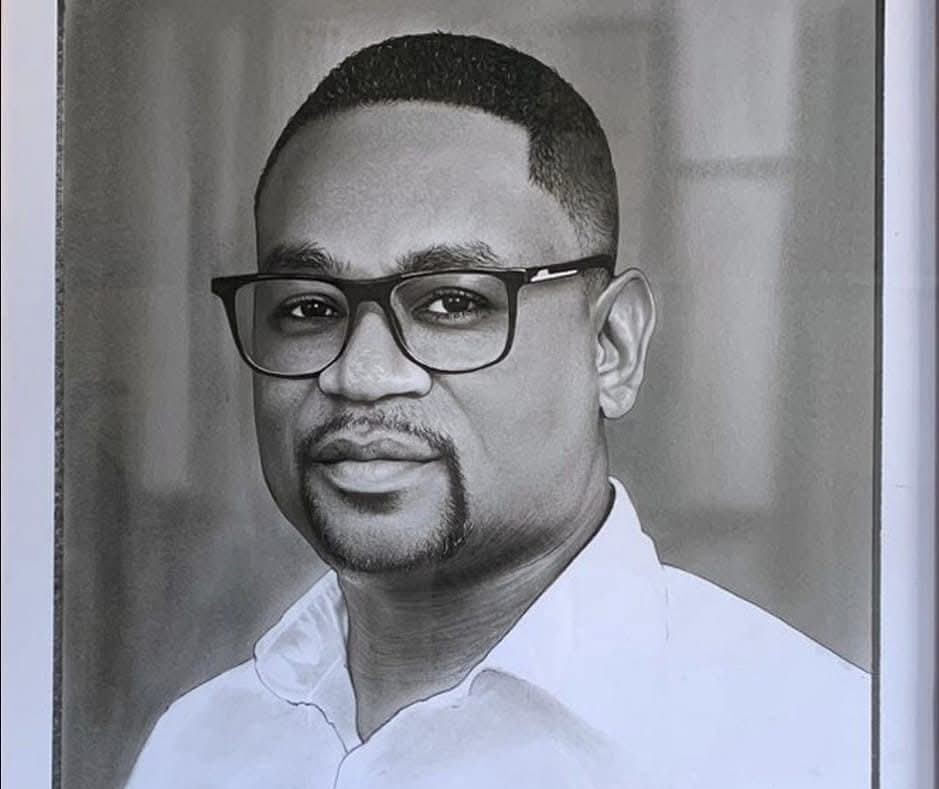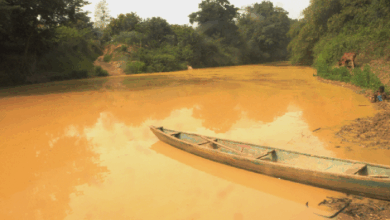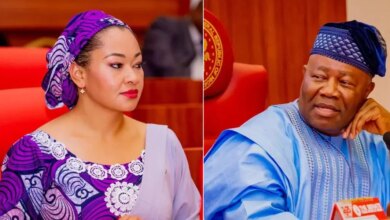Reconsidering classroom practices for developing critical thinkers in Ghana: Insights from the UK


Education is widely recognized as the foundation of national growth. Nations that succeed in the twenty-first century provide their citizens with the ability to think critically, address challenging issues, and adapt to a constantly changing environment. In Ghana, however, many of our classrooms still seem like antiques from the past: inflexible, controlled by teachers, and resistant to change. This fact begs the question: Can pupils educated through traditional pedagogical approaches effectively develop the problem-solving skills required in the modern world?
A comparison of the Ghanaian education system to that of the United Kingdom – our former colonial master, reveals stark contrasts. The UK has spent a lot of money over the years to modernize its education system. It has changed how teachers teach, how students sit, how they are tested, and even how classrooms are set up to get students ready for life beyond school. On the other hand, Ghana still relies on rote memorization, rigid rows of desks, and tests that check memory instead of reasoning. This issue transcends just aesthetics or comfort. The design and philosophy of education strongly impact the type of individuals a nation cultivates. In the United Kingdom, classrooms are designed to foster cooperation, critical thinking, and inclusion. In Ghana, curiosity is frequently stifled, originality is penalized, and conformity is rewarded.
The Historical Roots: Colonial Legacies and Divergent Paths
Colonial priorities influenced Ghana’s educational system. The main purpose of schools during British administration was to train administrators, clerks, and translators who could work in the colonial administrative apparatus. Instead of creativity or critical thinking, the focus was on rote learning, reading, and obedience. Teachers were seen as absolute authority who imparted information that pupils were supposed to learn and perpetuate. The UK, on the other hand, began reforming its own education system in the 19th and 20th centuries, long before independence reached colonies like Ghana. By the mid-20th century, the UK had moved towards more child-centred learning, influenced by educational theorists such as John Dewey, Jean Piaget, and Lev Vygotsky. The shift was deliberate: education was seen as not just a means of passing exams, but as preparation for life in a democratic, industrial society. Ghana, however, inherited the colonial system almost wholesale at independence in 1957. While reforms have been attempted from the Accelerated Development Plan in 1951 to the 1987 Educational Reform Programme and the recent Free Senior High School policy – the underlying structure has remained stubbornly exam-driven and teacher-dominated.
Training to Teach in the UK vs Training to become a Teacher in Ghana
One of the most telling contrasts between the UK and Ghana lies in how teachers are prepared for the classroom. In the UK, teacher training is structured, research-informed, and highly professionalised. Prospective teachers typically enter postgraduate programmes such as the Postgraduate Certificate in Education (PGCE) or School-Centred Initial Teacher Training (SCITT). These programmes combine university-based study with extensive school placements, ensuring that trainees learn both the theory and practice of pedagogy. Training emphasises evidence-based approaches, classroom management strategies, differentiated instruction, and inclusive practices that respond to the needs of diverse learners – including those with special educational needs and disabilities (SEND) and English as an Additional Language (EAL). Continuous reflection and mentoring are embedded, and trainees are supported by induction frameworks and professional standards that guide their development into fully qualified teachers.
In Ghana, by contrast, teacher preparation remains largely rooted in traditional training college models. While reforms have introduced degree-level teacher education, many programmes still prioritise subject knowledge and rote methods of delivery over pedagogy and reflective practice. Trainee teachers often experience limited exposure to real classroom environments during their training, and where teaching practice is included, mentoring support is inconsistent. Professional development after qualification is sporadic and underfunded, leaving teachers to rely heavily on outdated strategies such as “chalk and talk.” Furthermore, teaching is not accorded the same societal status and remuneration as in the UK, which affects morale and retention. The absence of clear professional standards also means there is less accountability for continuous improvement.
The implications of these differences are profound. A UK-trained teacher enters the classroom as a reflective practitioner equipped to adapt lessons, differentiate for diverse learners, and integrate technology effectively. A Ghana-trained teacher often enters with limited exposure to such methods, relying on inherited practices and struggling to innovate within resource-constrained environments. While Ghanaian teachers demonstrate resilience and dedication, the systemic gaps in their preparation mean that they are less empowered to transform their classrooms into spaces of critical thinking and creativity.
If Ghana is to cultivate teachers who can nurture critical thinkers, investment in modernising teacher training is essential. Partnerships with universities, greater emphasis on practicum experience, structured mentoring, and the institutionalisation of continuous professional development can help close the gap between training in Ghana and in more advanced systems like that of the UK.
“A UK-trained teacher enters the classroom as a reflective practitioner equipped to adapt lessons, differentiate for diverse learners, and integrate technology effectively. A Ghana-trained teacher often enters with limited exposure to such methods, relying on inherited practices and struggling to innovate within resource-constrained environments.”
Seating Arrangements: Obedience Versus Collaboration
One of the simplest yet most telling differences between Ghanaian and UK classrooms lies in seating arrangements. In the UK, classrooms are carefully designed to foster collaboration. Students often sit in groups around tables rather than in rows. Teachers frequently change seating patterns to reflect different activities: a science experiment, a debate, a group project, or an individual task. This flexibility acknowledges that learning is social and that students benefit from sharing ideas and supporting one another. Equally important, seating is used to balance abilities. Stronger students may be placed with weaker ones to encourage peer-to-peer learning. Teachers often rotate groups so that no student feels permanently labelled as “slow” or “bright.” The underlying philosophy is inclusivity and growth: every child, regardless of starting point, has the capacity to improve. In Ghana, classrooms too often resemble examination halls. Students sit in rigid rows facing the chalkboard. The arrangement symbolises authority: the teacher speaks, the students listen. Interaction is minimal, peer support is accidental rather than planned, and collaboration is rare. The environment is designed for obedience and control rather than creativity and exchange. This matters profoundly. A classroom that trains children to sit silently, copy notes, and fear mistakes is unlikely to produce graduates who can collaborate in teams, take initiative, or challenge assumptions – the very qualities the modern world demands.
“In the UK, seating is planned for collaboration. In Ghana, it is planned for obedience.”
Assessment: Beyond Recall to Application
Assessment represents one of the most striking contrasts between the two education systems. In the United Kingdom, the philosophy of Assessment for Learning (AfL) underpins classroom practice. Teachers view assessment not merely as a means of measuring achievement, but as a continuous process that supports and informs learning. Formative assessments through questioning, feedback, peer evaluation, and reflective tasks are integral to lesson delivery. Mistakes are treated as learning opportunities rather than failures; pupils are encouraged to explain their reasoning, revisit misconceptions, and build on feedback. Consequently, students participate actively and are unafraid to answer questions in class, knowing that an incorrect response is part of the learning journey, not a cause for embarrassment or punishment.
Moreover, schools employ a wide range of assessment methods written tests, project work, oral presentations, group tasks, and teacher observations to capture the multifaceted nature of learning. These approaches assess not only what students know, but how they apply knowledge in different contexts. For example, a mathematics project may require learners to analyse real-life data, apply statistical reasoning, and communicate findings through graphs and written explanations. Such diversity reflects an understanding that intelligence is not monolithic; it manifests through different modes of expression, whether analytical, creative, or practical.
In contrast, Ghana’s education system remains dominated by high-stakes, summative examinations such as the Basic Education Certificate Examination (BECE) and the West African Senior School Certificate Examination (WASSCE). Success is largely determined by memorisation and the ability to reproduce information under exam conditions. The emphasis on “chew and pour” learning – rote memorisation followed by mechanical regurgitation discourages critical thinking and problem-solving. Furthermore, a wrong answer in class can attract ridicule or even punishment, reinforcing a culture of fear rather than curiosity. This environment stifles creativity and self-expression, causing many students with potential in innovation, design, or applied reasoning to be marginalised. The result is an education system that prioritises recall over understanding, and compliance over exploration – an approach ill-suited to the demands of a rapidly changing world.
This contrast in assessment philosophy inevitably shapes teaching methods and classroom culture. In the UK, where formative assessment and feedback drive instruction, lessons are typically more interactive and dialogic. Teachers adapt their teaching in response to students’ needs, fostering a collaborative atmosphere where inquiry and reflection are encouraged. In Ghana, however, the predominance of summative assessment often dictates a more teacher-centred approach, with instruction focused on content coverage and exam preparation rather than conceptual understanding. The consequence is a classroom culture that values accuracy over exploration and conformity over creativity. Understanding these differences is crucial, as assessment practices do not merely measure learning—they actively construct the kind of learners and thinkers each system produces.
Teaching Methods: Authority Versus Facilitation
In the UK, teachers are trained to be facilitators of learning. They use questioning techniques, project-based learning, and differentiated instruction to meet the diverse needs of students. Lesson plans include activities for visual learners, auditory learners, and kinaesthetic learners. Technology is integrated seamlessly: interactive whiteboards, online research, and digital presentations are part of daily learning. Teachers are encouraged to embrace continuous professional development, reflecting on their practice and adopting new methods supported by research. Importantly, the profession is valued, with teaching standards and frameworks guiding practice across the country. In Ghana, teachers remain largely authority figures. The most common method is “chalk and talk”: teachers dictate notes, which students copy. Questions are often limited to recall, and deviation from the textbook is discouraged. Large class sizes exacerbate the problem, making interactive or differentiated teaching almost impossible. The gap in teacher training is also stark. While Ghana has teacher training colleges, the professional development of teachers is underfunded and often sporadic. Many teachers lack exposure to modern pedagogies or resources that could transform their classrooms.
Infrastructure and Resources
The physical environment of learning also differs markedly. In the UK, even in modest schools, classrooms are designed to be stimulating with posters, learning aids, project corners, and access to libraries and digital tools. Science laboratories and sports facilities are standard, and special educational needs are supported with tailored resources. In Ghana, many schools lack basic infrastructure. Rural schools often operate under trees or in dilapidated buildings. Libraries are rare, laboratories are under-equipped, and ICT facilities are scarce. Where computers exist, they are often outdated or inaccessible due to electricity challenges. This physical deprivation compounds the pedagogical challenges. How can a teacher encourage inquiry-based science learning without functional laboratories? How can digital literacy be taught without reliable access to computers or the internet?
Outcomes: Different Citizens for Different Societies
The result of these systemic differences is visible in the graduates each system produces. UK graduates are generally confident communicators, able to collaborate in teams, analyse problems, and adapt to new situations. They are prepared for economies where knowledge is constantly shifting and where employers value initiative as much as qualifications. Ghanaian graduates, by contrast, are often praised for discipline and diligence but criticised for lack of initiative and creativity. Employers lament the need for retraining, noting that many graduates are unable to translate theoretical knowledge into practical solutions. The irony is sharp: Ghanaian students are no less intelligent than their UK counterparts. The difference lies in the systems that shaped them.
Lessons and the Way Forward
What, then, can Ghana learn from the UK experience? Several important lessons emerge. First, classroom design must be taken seriously. The way pupils are seated, the opportunities for group work, and the flexibility of the physical space all shape how students engage with knowledge. Arrangements that encourage collaboration and participation should be prioritised over those that promote passivity and obedience. Secondly, assessment practices must evolve. Examinations alone cannot capture the full range of human intelligence. While tests have their place, they must be complemented with project work, oral presentations, creative assignments, and teacher observations. Such a system values different learning strengths and gives all students a chance to demonstrate their abilities in multiple ways. Third, teachers themselves are central to educational transformation. They must be supported through continuous professional development, exposure to modern pedagogical strategies, and recognition of teaching as a respected profession. Without well-prepared and motivated teachers, even the best reforms will falter. Equally, resources play a crucial role in enabling pedagogy. Investment in libraries, laboratories, and ICT infrastructure should not be seen as luxuries but as essential foundations for effective teaching and learning. Even gradual improvements, if consistent and well-planned, can have transformative effects. Finally, educational policy must transcend short-term politics. Reforms should not be tied to political cycles but anchored in a shared national vision. Ghana needs the stability of a long-term commitment to quality education that survives changes in government. Only then can meaningful progress take root.
Conclusion: A Call for Courage
The future of Ghana rests heavily on the kind of citizens our classrooms produce. If we continue to rely on rigid, hierarchical, and outdated models, we should not be surprised when our graduates struggle to meet the demands of a rapidly changing world. The comparison with the UK shows that transformation is not only possible but achievable through deliberate investment, innovation, and a commitment to child-centred learning. Ghanaian students are no less capable than their peers elsewhere; the difference lies in the systems that nurture them. Breaking from colonial legacies and exam-driven practices will require bold political will, sustained resources, and a cultural shift that values creativity as much as conformity. The courage to act must come from all stakeholders – policy makers, teachers, parents, and communities – who share a vision of an education system that equips learners to think critically, solve problems, and contribute meaningfully to national development. The choice before Ghana is clear: continue to replicate the past or reimagine education to secure the future. The time to act is now, for the longer we delay, the more we risk leaving generations of young people unprepared for the challenges and opportunities of the twenty-first century.
“The future of Ghana rests heavily on the kind of citizens our classrooms produce.”
DISCLAIMER: The Views, Comments, Opinions, Contributions and Statements made by Readers and Contributors on this platform do not necessarily represent the views or policy of Multimedia Group Limited.
DISCLAIMER: The Views, Comments, Opinions, Contributions and Statements made by Readers and Contributors on this platform do not necessarily represent the views or policy of Multimedia Group Limited.
Source link





